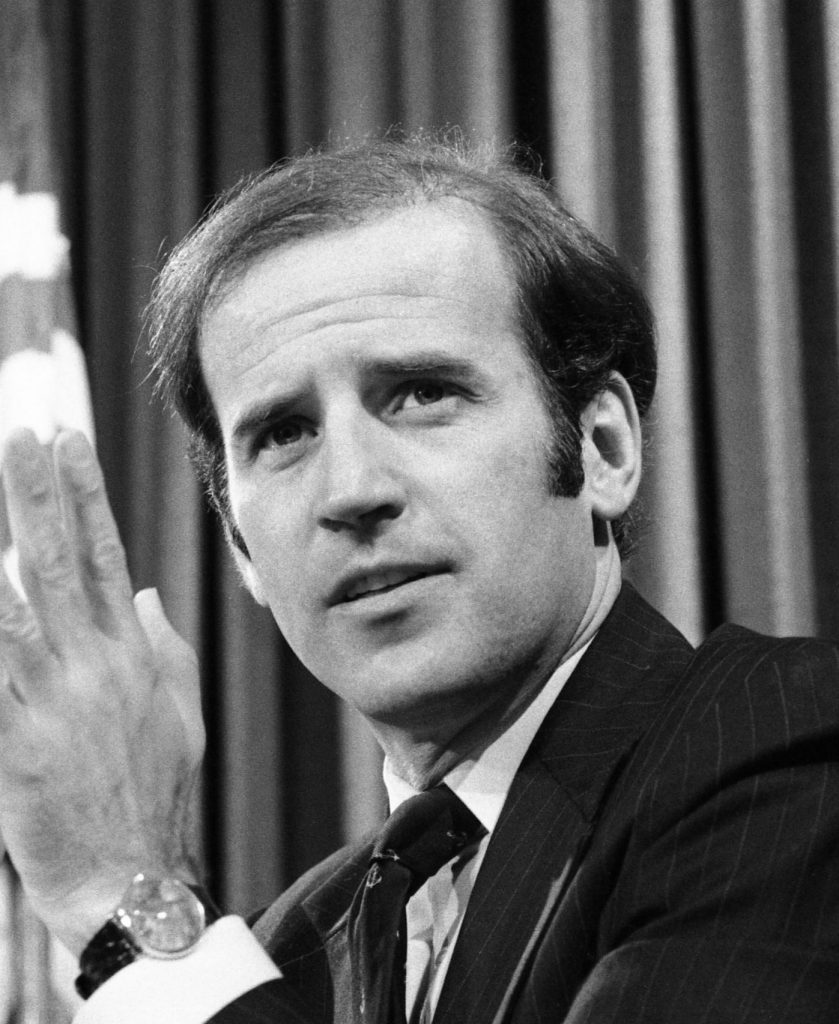
Over the past year, President Biden has repeatedly attacked Republicans for a proposal by U.S. Sen. Rick Scott calling for a five-year sunset on all federal legislation. Such a provision, the President warned, could mean the end of Medicare and Social Security. But in making these attacks, the President is leaving out a small but notable detail — he once supported a version of sunset legislation himself.
The year was 1978. Jimmy Carter was President and Democrats controlled both chambers of Congress. In the Senate, the top legislative priority was passing S.1, a jobs bill aimed at easing unemployment, which stood at nearly 7.5 percent. The second most pressing priority — ahead even of a bill, S.3, aimed at reforming health care — was S.2, a bill to get spending under control by establishing a ten-year sunset provision for every federal program.
The bill’s main sponsor was Edmund Muskie, the legendary Democratic senator from Maine. Its supporters ranged from Republicans Barry Goldwater and Jesse Helms to Democrats George McGovern and Edward Kennedy. “I regard the sunset concept as one of the most imaginative and innovative approaches to government reform that has been proposed in many years,” Kennedy said. All told, S.2 had 59 cosponsors in the Senate – 30 Democrats, 28 Republicans and one independent. The bill was overwhelmingly approved by a vote of 87-1 on October 11th.
While the bill was never voted on in the House and never seriously considered again, it is worth noting that one of the measure’s supporters was a first-term Senator from the State of Delaware, who took to the Senate floor on the day of the vote to lay out why he supported a federal sunset law. “When adopted,” then-Senator Joe Biden stated, “it will provide Congress with an essential tool for reviewing the need for Federal programs; controlling the growth of Federal spending; alleviating the overkill of regulatory activity; and restraining the sprawling Federal Bureaucracy.”
“When adopted,” then-Senator Joe Biden stated, “it will provide Congress with an essential tool for reviewing the need for Federal programs.”
The junior senator then went on to explain how the sunset bill would work. “Simply stated,” he said, “the bill would terminate most Federal spending programs
automatically on a regular schedule. Then, after a careful review by the appropriate Senate committee, the Senate and the Congress would decide whether to continue the program, or modify it, or terminate it. The two parts go together — the possibility of termination forces a review — and the review assures that the decision to continue or not continue the program will be a rational one. It is really a very simple mechanism.”
Biden concluded his remarks by noting that he had been pushing for passage of sunset legislation since 1974, and with “the unacceptable prospect of a $100 billion increase in Federal spending over the next two years,” it was time for Congress to act. “If we are not to remain in a deficit position forever,” he declared, “it is essential that we develop the tools to restrain spending. Four years of work has convinced me that sunset legislation is an essential tool. With the present rate of Federal spending, we cannot get it too soon.”
Over four decades later, Biden has apparently changed his tune when it comes to the need for federal sunset legislation. To be fair — the bill he supported in 1978, S.2, exempted Social Security and Medicare from its sunsetting provisions. This exemption has given the President a window through which he can attack Scott’s proposal — which, in reality, was not an expertly crafted bill but a rather poorly written bullet point.
But with the nation’s deficit over $1.5 trillion and with Congress once again hurtling toward a fiscal cliff over whether to increase the debt limit, it would be a good time to ask the President whether he would sign into law a bill similar to the one he praised and voted for 45 years ago – one that would sunset all federal programs except Social Security and Medicare in ten years as a way to get federal spending under control.
Now that they control the House, Republicans should pass sunset legislation similar to what Biden voted for as a Senator in 1978 and see if he will sign it into law as President today.
The idea is not that far-fetched. After all, sunset laws have been proven to work on the state level. A 2015 report by the Mercatus Center found that 36 states had some sort of sunset review process on the books. Texas has perhaps the nation’s most successful sunset program. According to a state government website, “reviews conducted between 1982 and 2019 have had an estimated positive fiscal impact of $1 billion in state and federal savings and revenue gains, with a return of $19 for every $1 appropriated to the Sunset Commission since 1985.”
Moreover, the concept of reviewing federal programs to determine their efficiency and continued worth has public support. A 2017 survey of the American electorate by The Ripon Society bears this out. When asked if “Federal government programs should be subjected to regular performance reviews to ensure they are providing Americans with value for their tax dollars,” 94 percent of Americans said that they should. The poll also asked if federal regulations should have a sunset date “where they either end or Congress decides to renew them.” Nearly 80 percent of Americans said they should.
Make no mistake – a sunset law is not going to eliminate the nation’s debt and deficit on its own. Republicans and Democrats in Washington need to figure out a way to come together and reform entitlement spending for that to happen. But a sunset law will begin to change the culture in Washington by providing Congress with a “simple mechanism” to bring federal spending down.
Joe Biden once supported this kind of mechanism. Now that they control the House, Republicans should pass sunset legislation similar to what he voted for as a Senator in 1978 and see if he will sign it into law as President today.
Lou Zickar is the editor of The Ripon Forum, a journal of political thought and opinion published by the Ripon Society.




